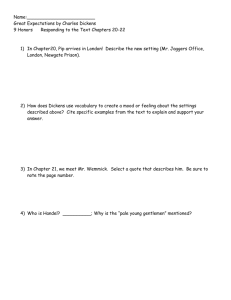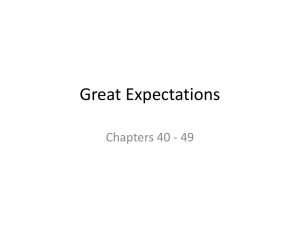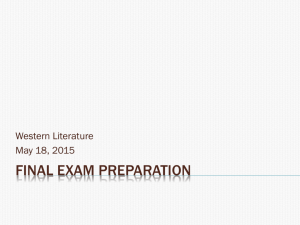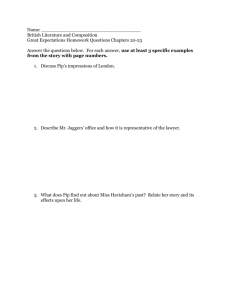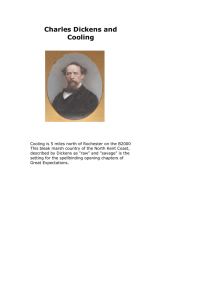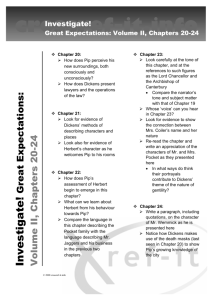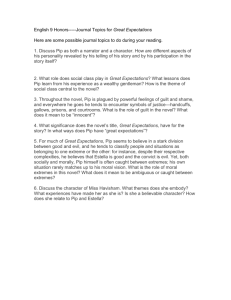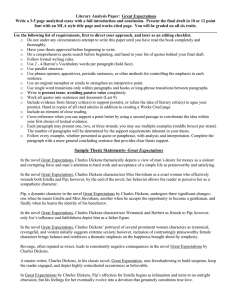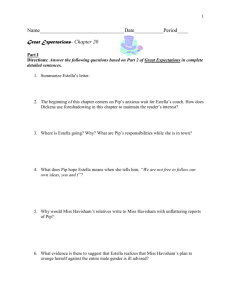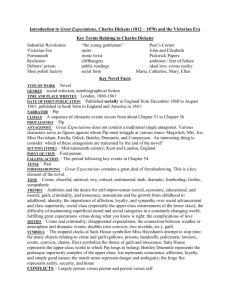Victorian Literature: Dickens & Great Expectations Analysis
advertisement
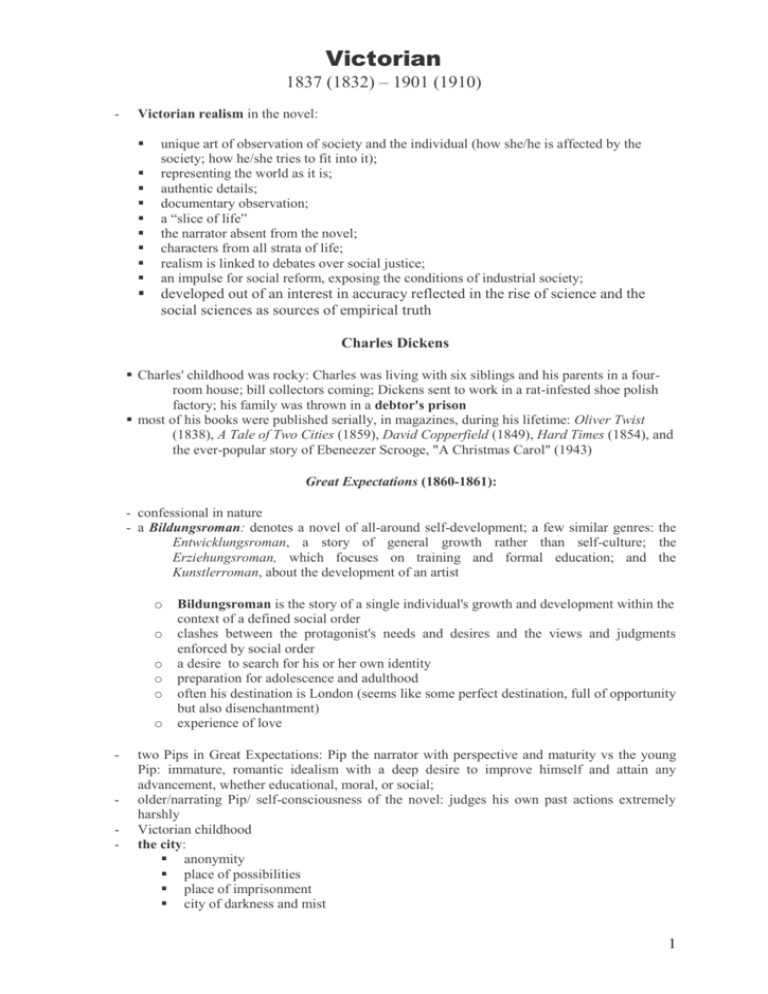
Victorian 1837 (1832) – 1901 (1910) - Victorian realism in the novel: unique art of observation of society and the individual (how she/he is affected by the society; how he/she tries to fit into it); representing the world as it is; authentic details; documentary observation; a “slice of life” the narrator absent from the novel; characters from all strata of life; realism is linked to debates over social justice; an impulse for social reform, exposing the conditions of industrial society; developed out of an interest in accuracy reflected in the rise of science and the social sciences as sources of empirical truth Charles Dickens Charles' childhood was rocky: Charles was living with six siblings and his parents in a fourroom house; bill collectors coming; Dickens sent to work in a rat-infested shoe polish factory; his family was thrown in a debtor's prison most of his books were published serially, in magazines, during his lifetime: Oliver Twist (1838), A Tale of Two Cities (1859), David Copperfield (1849), Hard Times (1854), and the ever-popular story of Ebeneezer Scrooge, "A Christmas Carol" (1943) Great Expectations (1860-1861): - confessional in nature - a Bildungsroman: denotes a novel of all-around self-development; a few similar genres: the Entwicklungsroman, a story of general growth rather than self-culture; the Erziehungsroman, which focuses on training and formal education; and the Kunstlerroman, about the development of an artist o o o o o o - - Bildungsroman is the story of a single individual's growth and development within the context of a defined social order clashes between the protagonist's needs and desires and the views and judgments enforced by social order a desire to search for his or her own identity preparation for adolescence and adulthood often his destination is London (seems like some perfect destination, full of opportunity but also disenchantment) experience of love two Pips in Great Expectations: Pip the narrator with perspective and maturity vs the young Pip: immature, romantic idealism with a deep desire to improve himself and attain any advancement, whether educational, moral, or social; older/narrating Pip/ self-consciousness of the novel: judges his own past actions extremely harshly Victorian childhood the city: anonymity place of possibilities place of imprisonment city of darkness and mist 1 - Britain as an empire and colonial economy gothic elements: setting (the marshes; Satis House), characters (Miss Havisham), doubles: symmetry—two convicts on the marsh (Magwitch and Compeyson), two invalids (Mrs. Joe and Miss Havisham), two young women who interest Pip (Biddy and Estella), two secret benefactors: Magwitch, who gives Pip his fortune, and Pip, who mirrors Magwitch’s action by secretly buying Herbert’s way into the mercantile business; two adults who seek to mold children after their own purposes: Magwitch, and Miss Havisham - crime and criminals Dickens changed the original ending where Pip meets the remarried Estella in London and they part forever, to the one where Pip and Estella stay together - class issues: the class system of Victorian England: from the most wretched criminals to the poor peasants of the marsh country to the middle class to the very rich wealth and class are less important than affection, loyalty, and inner worth; a person's class as a product of their morals and behavior, not of how much money they possess one’s social status is in no way connected to one’s real character - expectations educational, moral, or social (Ambition and Self-Improvement); he longs to be a wealthy gentleman; he longs to be good; desires educational improvement; a full education is a requirement of being a gentleman rise in status, with the catalyst of someone else's money/status "expectations" (his money) have finally done him some good, when he's able to arrange a business opportunity for Herbert not just money but also the source of money is important develops some simple and realistic expectations life as a gentleman is no more satisfying and no more moral learns that social and educational improvement are irrelevant to one’s real worth Buckley, Jerome Hamilton. 1974. Season of Youth: The Bildungsroman from Dickens to Golding. Cambridge: Harvard UP Dickens, Charles. 1994. Great Expectations. London: Penguin Books Ltd. mgr Katarzyna Bronk for English Literature class 2
